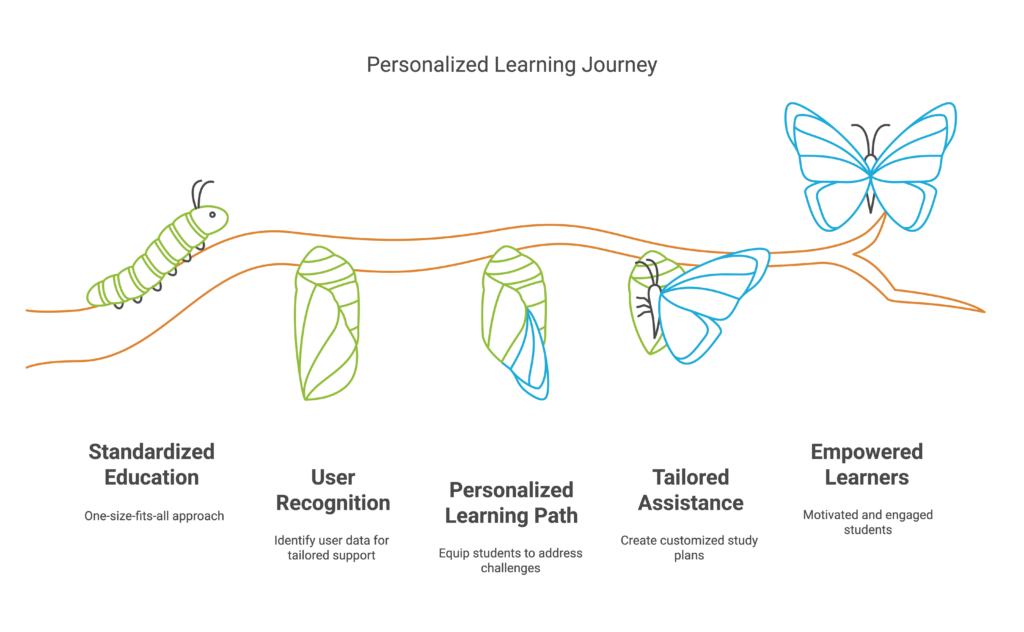Digital Identity: Personal vs. Professional
One of the most crucial insights I gained was understanding the distinction between personal and professional digital personas. My personal digital footprint encompasses elements like social media interactions, casual group conversations, and personal interests I share with friends and family online. Conversely, my professional digital identity centers on how I represent myself in academic or career-related contexts — through platforms like LinkedIn, academic forums, or any content publicly associated with my name.
To maintain a clear boundary between these identities, I’ve become increasingly strategic about my online presence. I’m meticulous about privacy settings and carefully consider the potential implications of each post. Before sharing anything on public platforms, I pause to evaluate its potential impact. In professional spaces, I strive to maintain a consistent tone and ensure that any contributions authentically reflect my professional values and career aspirations.
This deliberate separation is critical because it allows me to safeguard my personal privacy while simultaneously cultivating a credible professional reputation. In today’s digital landscape, where a simple name search can reveal extensive personal information, taking control of one’s digital identity has become both an empowering strategy and an essential professional skill.

Digital Visitor and Resident Map
The concept of Digital Visitors and Residents was entirely new to me, but it provided profound insight into my diverse internet usage patterns. A visitor approaches online tools pragmatically, accomplishing tasks with minimal digital footprint. In contrast, a resident engages more deeply, establishing a meaningful and visible online presence with social and emotional investment.
Crafting my personal Digital Map revealed that I’m a resident on platforms like Instagram, Discord, and collaborative educational tools such as Google Docs and Canvas discussions. Here, I actively contribute, interact frequently, and maintain a distinct digital persona. Conversely, I adopt a visitor approach on platforms like online banking apps or research databases, where my interactions are purely transactional and purpose-driven.
This mapping exercise prompted deep reflection on how my digital identity is predominantly shaped by my resident platforms rather than my transient visitor interactions. I anticipate my digital landscape will evolve dynamically—particularly as I develop more professional digital spaces like LinkedIn and e-portfolios, gradually shifting away from casual platforms. These transformations will likely cultivate a more deliberate and strategic approach to my online self-presentation.

Theories of Personalized Learning
Learning about personalized learning theories, particularly Constructivism and Self-Directed Learning, prompted deep introspection about my educational experiences. I’ve come to understand that my engagement and motivation significantly increase when I have a degree of control over my learning process. Specifically, having the freedom to select interesting topics, establish personal learning objectives, or progress at a pace that suits my individual needs empowers me to take genuine ownership of my educational journey.
This very course embodies the principles of personalized learning — we’re actively encouraged to engage in reflective practices, share insights through blog posts, and utilize learning tools that align with our unique learning styles. This approach has profoundly enhanced the learning experience, serving as a powerful reminder that standardized, one-size-fits-all educational models often fall short of truly supporting individual learners. Moving forward, I’m committed to seeking out learning environments and professional opportunities that prioritize learner autonomy and adaptive educational strategies.

Privacy, Surveillance, and Digital Footprint Awareness
Before this module, I never gave much thought to how my online activities create a digital footprint, but now I understand the critical importance of being aware. Every single post, click, or online purchase contributes to the data trail I leave behind, and often, this data is being monitored or utilized in ways I might not fully comprehend.
To safeguard my privacy, I’ve started taking more proactive control over my digital settings, such as disabling unnecessary tracking, implementing stronger passwords, and becoming more discerning about the platforms I entrust with my personal information. Additionally, I’ve become more cautious about what I share, particularly in public spaces.
Understanding the significance of digital privacy is crucial because surveillance and potential data misuse can significantly impact your personal safety, digital freedom, and online reputation. Developing good digital habits — like using secure platforms, being mindful about oversharing, and constantly questioning how and why your data is collected — represents small yet meaningful steps toward establishing a more secure digital presence.

Hi Chad,
This was a fun blog post to read as you distinguished your personal vs professional digital persona. I also discussed pausing before posting strategy on my blog post and how it’s a simple and powerful habit. It reduces impulse and potential regret later on so that the user is less likely to post something they wish they hadn’t. I think it encourages the user to reflect if it aligns with their personal or career goals whether it’s for connection and fun or creating new networking and establishing credibility.
Building on your reflections, I wonder how platform design and algorithms influence and shape our Visitor/Resident behaviors. For example, LinkedIn’s feed generates professional success and engagement where people are posting their career success stories, while Instagram’s algorithm prioritizes person and visually driven content. Have you noticed how that shaped your own posting habits and patterns in how you present yourself to the public?
I look forward to seeing how you integrate these ideas with your work. Amazing job!